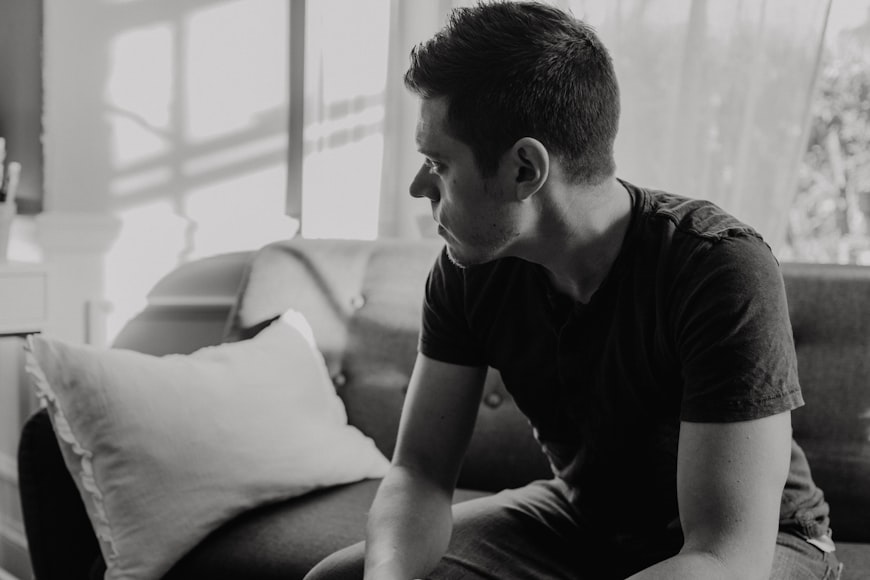How Long Does Mourning Last? – It is common to hear that time will heal all the wounds even if you don’t feel this way. But mourning for loss is a necessary process to undergo. It is a process that helps you heal from the loss. Working through your loss and learning to live with grief can take a long time.
Everyone’s feelings of grief are different; there is no specific amount of time for grief; it can take someone months or years to heal from the loss. If you’re suffering from the loss of the death of your loved one, you must be wondering about the question arising in your mind, how long does mourning last? In this article, I’ll discuss mourning in detail and how long does it usually last? Let’s begin!
What is mourning?
Mourning is a universal process that goes along with grief. It is a public display of grief and a natural response to the death of the loved one, losing a valued relationship with friends and family, losing a job, or any other significant change that alters life.
Mourning or a grieving process comes with a variety of emotions like feeling depressed, sad, or lonely. The feelings of grief are different for everyone; the intensity and duration vary from person to person. However, it can become complicated grief if you don’t accept the loss and emotions. Let’s take a look at the most important section of this article- how long does mourning last.
How long does mourning last?

There is no set duration for mourning, and it is uncontrollable. Studies found that the mourning may last from 6 months to 4 years. Another study discovered that intense grief peaked at around 4-6 months, then it gradually declined over the next 2 years.
One year is a normal accepted period, but your heart will still feel the pain of the death of a loved one after a year. The intensity of the grieving process varies from person to person and culture.
Here are some factors that affect the intensity and length of mourning:
- Type of loss
- Your relationship with a person who has died
- The circumstances of their death
- Your life experiences
According to Kubler-Ross, there are five popular stages of grief that will help you understand where you are in grief and how long it usually lasts. The stages are:
Denial
When you first hear the news of a loss, it is normal to deny the news. In the early stage of mourning, you feel numb or shocked. It can take hours to a few days to accept the news. Sometimes, it takes longer. So, the denial stage of grief is short-lived, and it’s actually a defense mechanism.
Anger

After the initial shock, as you accept the reality of loss, feeling frustrated or angry towards the person who has died is a typical reaction to grief. In this stage, you feel a strong variety of emotions and pain from your loss.
Bargaining
During the mourning and grieving process, you may feel helpless. In this stage, you have common thoughts of What if or If only. You want to bring your loved one back and think about what you could have done to prevent the loss. It postpones your sadness and confusion.
Depression

In the early stages of loss, you’ll be on an emotional roller coaster and have good and bad days. It’ll make you quiet, and you will isolate yourself from others to cope with loss. If you’re grieving the death of your loved one or the loss of a relationship with friends and family, you might be overwhelmed with pain and sorrow. If you experience continuous grief and feel stuck here, consider reaching out to professionals so that ordinary grief does not turn into complicated grief.
Acceptance
Although there is no timetable for how long mourning will last, as time passes, there comes a stage when you accept the loss. When you accept your loss, you find yourself healing from the pain. This does not mean you’ve moved past the loss of your loved one, but the intensity of grief may lessen, and you have worked through the process of mourning. Also, there will be a point where the good days are more than the bad days, and your feelings of grief will be a source of comfort and a reminder of your loved one or any experience.
Things you can try that may help you slowly get back on track
Mourning and complicated grief can leave you in deep emotional pain and lead to depression, anxiety, or emotional breakdown. Therefore, trying out the things that may help you heal the loss and get back on track is imperative. Here are some helpful things you should try to cope with the loss.
- Accept your emotions and allow yourself to feel how you’re feeling.
- Don’t isolate yourself. Connect with other people-your loved ones, friends, and family.
- Exercise regularly, get adequate sleep, and eat well to stay healthy.
- Write a journal to let your feelings out and listen to your favorite music.
- Try out the activities that bring joy. Also, continue to do things you used to do with your loved one.
- Set small goals and avoid making major decisions.
- Reach out to your support groups. It is recommended to seek help from friends and family, therapists, or support groups.
Signs you’ve been mourning for way too long

If you’re worried about the feelings of grief and can not understand whether you’re mourning for way too long or not and whether your grief has turned into complicated grief, take a look at these emotional and physical signs of unhealthy grief.
- Feeling anxious, hopeless, numb, fearful, guilty, or having panic attacks
- Have thoughts of hallucinations with what you lost. Dreams of a deceased person.
- Isolating yourself and socially withdrawing
- Weight loss or gain
- Loss of appetite and trouble sleeping
- Feeling tired, dizziness, nausea
- Chest pain, fast heartbeat, or heaviness in the chest or throat
Also Read: Signs Of A Chronic Complainer
Do reach for professional help if things aren’t getting any better
If you feel things are not getting any better and are experiencing complicated grief, reach out to a mental health professional to help you process your grief. Your therapist, counselor, or doctor may help you explore your emotions and manage your grief. They will support you and teach you coping skills. If grief is left untreated, it can lead to significant emotional damage.
Are you experiencing complicated grief or trauma? Don’t hesitate to reach out to me. As a mental health professional and coach, I would love to help you resolve your grief, improve your coping skills and get back to your previous equilibrium.













![2024 Awareness Wordbook by Vivien Roggero [Self-discovery tools]](https://vivienroggero.com/wp-content/uploads/2023/04/Book-Awarness-Full-pack.png)